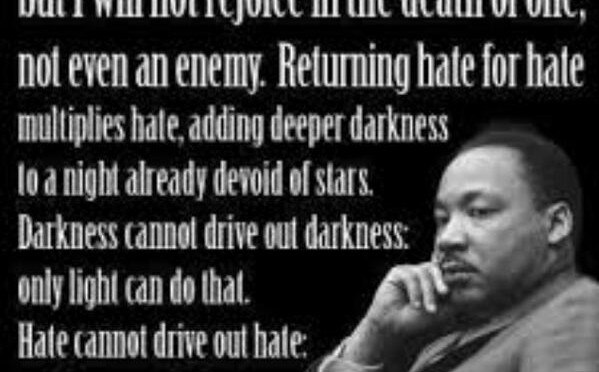Caitlin Trussell with Augustana Lutheran Church on January 25, 2026
[sermon begins after two Bible readings; one more Bible reading is at the end of the sermon]
Matthew 4:12-23 Now when Jesus heard that John had been arrested, he withdrew to Galilee. 13 He left Nazareth and made his home in Capernaum by the sea, in the territory of Zebulun and Naphtali, 14 so that what had been spoken through the prophet Isaiah might be fulfilled:
15 “Land of Zebulun, land of Naphtali,
on the road by the sea, across the Jordan, Galilee of the gentiles
16 the people who sat in darkness
have seen a great light,
and for those who sat in the region and shadow of death
light has dawned.”
17 From that time Jesus began to proclaim, “Repent, for the kingdom of heaven has come near.”
18 As he walked by the Sea of Galilee, he saw two brothers, Simon, who is called Peter, and Andrew his brother, casting a net into the sea—for they were fishers. 19 And he said to them, “Follow me, and I will make you fishers of people.” 20 Immediately they left their nets and followed him. 21 As he went from there, he saw two other brothers, James son of Zebedee and his brother John, in the boat with their father Zebedee, mending their nets, and he called them. 22 Immediately they left the boat and their father and followed him.
23 Jesus went throughout all Galilee, teaching in their synagogues and proclaiming the good news of the kingdom and curing every disease and every sickness among the people.
Isaiah 9:1-4There will be no gloom for those who were in anguish. In the former time [the Lord] brought into contempt the land of Zebulun and the land of Naphtali, but in the latter time he will make glorious the way of the sea, the land beyond the Jordan, Galilee of the nations.
2 The people who walked in darkness
have seen a great light;
those who lived in a land of deep darkness—
on them light has shined.
3 You have multiplied exultation;
you have increased its joy;
they rejoice before you
as with joy at the harvest,
as people exult when dividing plunder.
4 For the yoke of their burden
and the bar across their shoulders,
the rod of their oppressor,
you have broken as on the day of Midian.
[sermon begins]
Last week at my gym, the question of the day was, “What is a skill you have and the aha moment that took it to the next level?” My skill was caramelizing onions. The aha moment was that caramelizing onions will NOT be rushed. They just take time and tending. Don’t believe those five-minute recipes. Once I got my head around the time they take, yum. Time I’m willing to take because I love to cook. And time I’m willing to take because there was a time in recent years when cooking the things I love to eat wasn’t available to me. The sensuality of cooking manifests in taste, touch, smell, and sounds. And the artistry of it shows in colors, textures, and layers. Combining edible things into more than the sum of their parts reminds me that the world is an enchanted place. An enchanted place that sustains our bodies with all that we need. Wouldn’t it be nice if the world worked the way that cooking does? A list of ingredients, combined in just the right way at the right time and temperature, blend to sensually and artistically nourish life. Alas. The tragedy is that we keep returning to the same tricks to turn the world in our favor.
In our reading from Matthew, Jesus’ ministry begins after John was arrested. We’re given no details about John’s arrest but it’s a really big, ultimately deadly deal. John didn’t survive his imprisonment. Remarkably, Jesus used the same words that John used to inaugurate his ministry, “Repent, for the kingdom of heaven has come near.” That’s a bold move by Jesus given that the one who had been saying those words was now in the custody of Herod Antipas, the ruler of Galilee who also answered to Rome. Jesus repeating John’s proclamation isn’t less risky because it’s already been said. Jesus’ risk increased because he knowingly connects his message with John’s.
More than just turning away from bad things, repent in the Bible means to be of a new mind.[1] Herod Antipas wasn’t a fan of new perspectives. He liked his own ideas, thank you very much. Hence, John’s arrest. Jesus didn’t let that slow him down. If fact, he doubled down on repentance and the kingdom of heaven coming near in light of the abiding promise quoted from Isaiah:
The people who sat in darkness
have seen a great light,
and for those who sat in the region and shadow of death
light has dawned.
Matthew quoted the Isaiah reading that we heard today, too. Isaiah was a prophet when the Northern Kingdom of Israel was invaded by the Assyrians under the reign of Tiglath-Pileser III. Into this dark time, Isaiah prophesied about God’s presence and abiding promise in that moment and into the future. A future that introduces a third way, a way of joy and exultation and a new light dawning.
In Matthew, Jesus’ ministry reveals this dawning light by calling people to a new mind. I can’t express just how much his call means to me as someone who grew up in a fundamentalist Christian tradition. Due to that upbringing, I resist fundamentalism in all its forms. Fundamentalism is any religious movement that advocates strict conformity.[2] I would tweak that slightly to say that any movement can develop a religious fervor that advocates strict conformity and creates fear.
A few weeks ago, it was my turn in Children’s Chapel with the Augustana Early Learning Center kiddos. The celebration of Epiphany about the wise men who followed a star to see the sweet little Jesus had just passed, so I read them the story from the Spark Bible that are in our pews. We talked about camels, and the star, and the scary King Herod (Herod Antipas’ dad) who was afraid of what a newborn king would mean. When I read to the kids that King Herod was afraid, a few of the kids said and repeated, “I’m never afraid!” As a former nurse, I paused the story to talk about fear and that we all feel afraid sometimes. I taught them that there’s a small part of the brain in our heads called the amygdala and that we can feel afraid before we even know what’s happening. And when we feel afraid it’s really important to find someone to talk to, to say we’re afraid, and to have them help us calm our bodies down. Then we continued with the Bible story, sang the Hippo Song at top speed, and ended our chapel time sitting with our eyes closed while I led us in taking 10 deep breaths. I count out loud. Breathe in one…breathe out. Breathe in two…breathe out. Their lungs are smaller than mine, so I try to pace that for them. And then we prayed.
I tell that story in depth because we have some of those kids and their families joining us for preschool Sunday today. But also because we’re in a time in our country that stirs up fear and where there is fear there is fundamentalism. And fundamentalism draws hard lines between worthy people and unworthy people, makes us afraid of them, and makes it easier to hate them. After cancer and remission a few years ago, I cannot hold hate in my body. I won’t do it. That’s not to say that I don’t get scared or frustrated or even angry. But hate doesn’t solve anything and my body can’t sustain it. Hate is a choice and a behavior much like love is a choice and a behavior.
In a sermon titled “The Most Durable Power,” Reverend Doctor King preached against this very thing. He said, “Let no man pull you so low as to hate him.”[3] Let no man pull you so low as to hate him. Reverend King went on to argue that love doesn’t attempt to defeat and humiliate but to bring justice for all, the oppressed and the oppressor. A new way of living together. Dare we say a third way in our mad world.
Just as Jesus went through Galilee proclaiming a new mind, he also reached out in mercy, “curing every disease and every sickness among the people.” This wasn’t just a nice thing to do. We’ll see throughout the gospel of Matthew that mercy and wholeness are an essential part of Jesus’ message. We’ll hear it next week as he begins preaching the Sermon on the Mount in chapter 5. He’ll preach about life lived in opposition to the things that bring suffering and death.[4]
Paul’s first letter to the Corithian church touches on the third way. Thank God for that first century church in Corinth. Their disunity and factionalism meant that Paul had to write to them and in Paul’s writing we’re privy to the early church’s teachings.[5] He doesn’t shame the congregation in Corinth or lecture them to be nice. He preaches about the cross and the different kind of community that’s possible because the cross is the great leveler. In that community, in that world view, power and might are not the way forward. Love is the way forward. Love is the most durable power.
Jesus invites people to follow him in this Way of love. He doesn’t conscript people by force and fear to wage a war against his opponents. In fact, it’s the opposite. He invites people into the ministry of mercy that he began in Galilee of the gentiles. He invites us to follow his third way in a mad world. To follow him in love and see where it leads. Thanks be to God. And amen.
______________________________________________________
[1] Metanoia is the Greek word. Literally “a new mind.” #1065: Third Sunday after Epiphany – January 25, 2026 – Working Preacher from Luther Seminary
[3] Martin Luther King Jr. “The Most Durable Power,” Excerpt from Rev. Dr. King’s Sermon at Dexter Avenue Baptist Church on 6 November 1956. “The Most Durable Power,” Excerpt from Sermon at Dexter Avenue Baptist Church on 6 November 1956 | The Martin Luther King, Jr. Research and Education Institute
[4] Matt Skinner, Professor of New Testament, Luther Seminary, St. Paul, MN. Sermon Brainwave podcast.#1065: Third Sunday after Epiphany – January 25, 2026 – Working Preacher from Luther Seminary
[5] Ibid.
__________________________________________________
1 Corinthians 1:10-18 Now I appeal to you, brothers and sisters, by the name of our Lord Jesus Christ, that all of you be in agreement and that there be no divisions among you but that you be knit together in the same mind and the same purpose. 11 For it has been made clear to me by Chloe’s people that there are quarrels among you, my brothers and sisters. 12 What I mean is that each of you says, “I belong to Paul,” or “I belong to Apollos,” or “I belong to Cephas,” or “I belong to Christ.” 13 Has Christ been divided? Was Paul crucified for you? Or were you baptized in the name of Paul? 14 I thank God that I baptized none of you except Crispus and Gaius, 15 so that no one can say that you were baptized in my name. 16 I did baptize also the household of Stephanas; beyond that, I do not know whether I baptized anyone else. 17 For Christ did not send me to baptize but to proclaim the gospel—and not with eloquent wisdom, so that the cross of Christ might not be emptied of its power.
18 For the message about the cross is foolishness to those who are perishing, but to us who are being saved it is the power of God.



